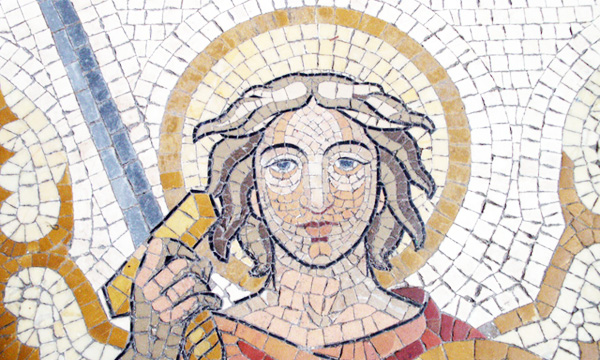Now concerning our brother Apollos, I strongly urged him to visit you with the other brothers, but it was not at all his will to come now. He will come when he has opportunity (1 Corinthians 16:12). Even our very best plans often meet with significant snags. Many variables can conspire to derail our plans, but one in particular often proves a great help or hindrance in our efforts: people. Planning would be so easy if it weren’t for other people with other opinions! Pastoring, marriage, child-rearing, and evangelism would all be a cinch if you just didn’t have to
Church
Is Church Really That Important?
Paul in Ephesians 1:23 describes the church as the body of Christ. And in Ephesians 2:20 Paul goes on to explain that Jesus Christ himself is the cornerstone of the church. As if this were not enough, Paul further insists in Ephesians 3:10 that the manifold wisdom of God is being made known, through the church, to the rulers and authorities in heavenly places. In 1 Timothy 3:15 the church is said to be “a pillar and buttress of the truth.”
Is Christian History Relevant Today?
From a negative standpoint, the neglect of Christian history reflects the incorrect assumption that we have all wisdom in our day and there is nothing to learn from wise men of the past – in effect, that the Holy Spirit has been inactive for the last 2,000 years. Our generation is among the worst when it comes to what C.S. Lewis called “chronological snobbery,” infatuated with the newest thing and suspicious of anything that is old.
Greet One Another With a … What?
Greet one another with a holy kiss (1 Corinthians 16:20). Before we titter nervously like preteen school boys at Paul’s exhortation to kiss, consider this: a kiss in New Testament times was used as a warm greeting between those of the same sex. Many countries in Europe, Asia, and the Middle East still kiss on the cheek or on the forehead as a part of greeting one another affectionately. How is this exhortation still relevant to us today, in the West?
The Dangers and Benefits of Revival
Will you not revive us again, that your people may rejoice in you? (Psalm 85:6). We are in desperate need of revival. Our marriages, our families, our churches, our nation (no matter what nation we hail from)—in every arena of life and society and religion we need the omnipotent, renewing visitation of the Holy Spirit. Yet many of us as Christians do not know what “revival” even means precisely.
I Have Other Sheep
In John 10:16 Jesus says, “I have other sheep that are not of this fold. I must bring them also, and they will listen to my voice. So there will be one flock, one shepherd.” When you hear these words, what is your gut reaction? Are you offended that Jesus is just as concerned about homeless people and third-world gorilla fighters as he is about you? Or do you feel unconcerned for “other” people, because they’re totally different than you, although Jesus loves them also?
There Is Only One Good Fight
Paul tells Timothy to “fight the good fight of faith” (1 Timothy 6:12) and to “wage the good warfare” (1 Timothy 1:18). Clearly conflict is to be part of our Christian life — but conflict with whom or what? We will search the Scriptures in vain for the idea that the conflict is supposed to be with other genuine Christians. It is a conflict with sin, with Satan, and with false doctrine that undermines the fundamentals of the Christian faith.
Apprehension Leads to Application
While knowledge of the truth is very important, it is possible to put so much emphasis on the letter of it that the application is forgotten. Paul reminds us that knowledge alone just puffs a person up, while knowledge according to love actually builds up. So here is a thought for pastors, especially, and by implication the people in the pew as well.
Exhort Each Other Daily
Exhort one another every day, as long as it is called “today,” that none of you may be hardened by the deceitfulness of sin (Hebrews 3:13). I was thinking recently about cases where a person who has been a professed believer, maybe even a well-known Christian leader, falls into public sin or even apostasy, and walks away from the Christian faith. Sadly, there have been many such cases in the news lately. We often think, and maybe even say, afterward that in hindsight there were some tendencies we could see in that person’s life that led to their eventual demise:
What Should I Be Giving To Financially?
Our first and primary obligation is certainly to the local church. The Bible is very clear on the fact that we are to financially support those pastors who minister to us spiritual things, by ministering to their physical needs (1 Corinthians 9:7-11; 1 Timothy 5:17-18). The Scripture is equally plain regarding our obligation to support the poor and needy within the body of Christ (1 Timothy 5:16; 1 John 3:17).
We Want to See Jesus
We wish to see Jesus (John 12:21). These were the words of the Greeks who approached the apostle Philip when they came to the feast at Jerusalem. It is interesting to observe that these Gentiles were seeking Jesus while the Jewish leaders were plotting to put him to death. Their appearance points to the bringing in of the Gentiles and the blessing of the gospel they would soon enjoy.
I Thank God For You
I give thanks to my God always for you because of the grace of God that was given you in Christ Jesus (1 Corinthians 1:4). There is a theological point to make from this verse, because Paul is thanking God for his grace to believers. As he does continually in his letters, Paul is reminding the saints at Corinth that their faith, and their faithfulness, is by God’s grace and through Jesus Christ. Yet there is also a personal point not to be missed in this passage:
Unity, Liberty, Charity
Puritan pastor Richard Baxter took an old Latin phrase and popularized it in his day, in English. It is simple, but profound: “In essentials, unity; in non-essentials, liberty; in all things, charity.” Why was Baxter so concerned to see Christians publicly, charitably, doctrinally unified? Baxter, writing in 17th century England about the evil effects of division in the church, made this observation:
The Image of God and the Hope of the Gospel
Not long ago I was asked to give a biblical overview of “The Oneness of Humanity” at a Christian hip-hop album release party. The more I thought about this subject, the more prominently I perceived it in Scripture. This issue is touched on all over the place in the Bible, but my task was to give a bird’s eye view of this topic, flying over it to hit some major points. I hope that sharing a brief outline of my message will be like the ravens that brought Elijah food; I hope it leaves you hungering for more of what
Every Believer Is a Saint
To the church of God that is in Corinth, to those sanctified in Christ Jesus, called to be saints together with all those who in every place call upon the name of our Lord Jesus Christ, both their Lord and ours (1 Corinthians 1:2). Paul’s first letter to the Corinthians is an epistle written to straighten out a church with a host of serious problems. Yet as such it is helpful and enlightening and inspiring to see how Paul the theologian addresses his deep, rich theology to specific, messy, practical issues as Paul the pastor.














